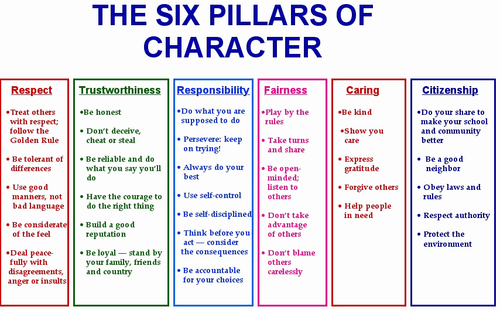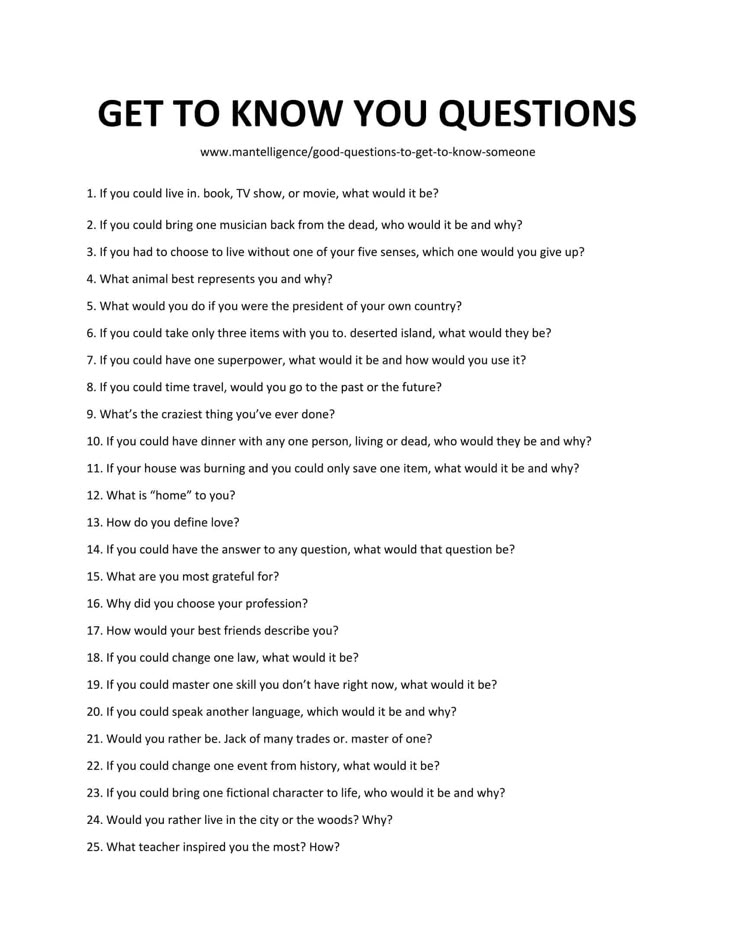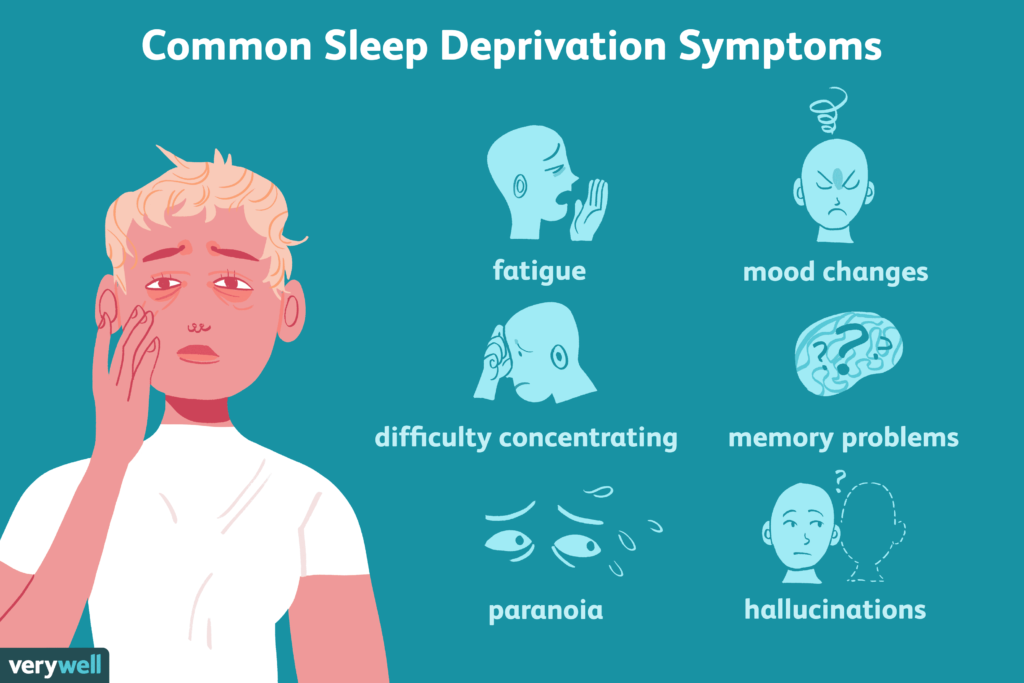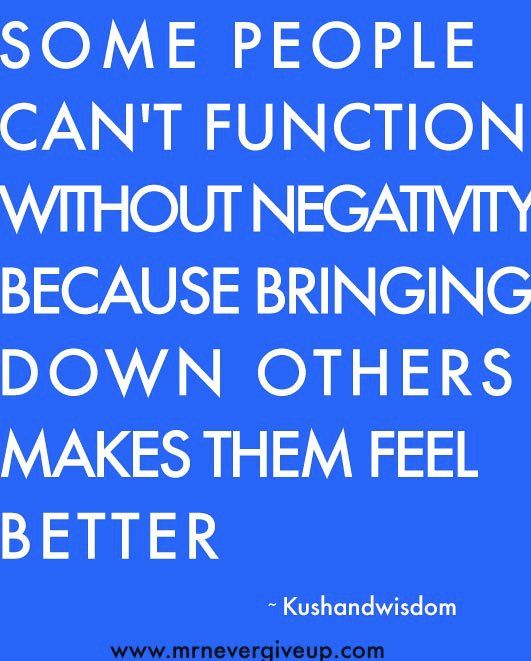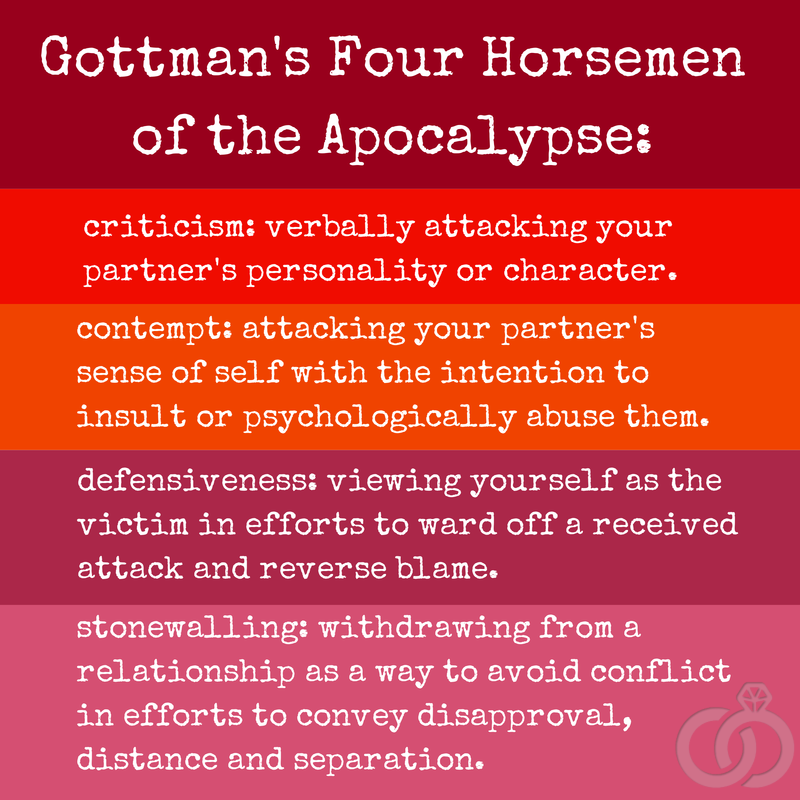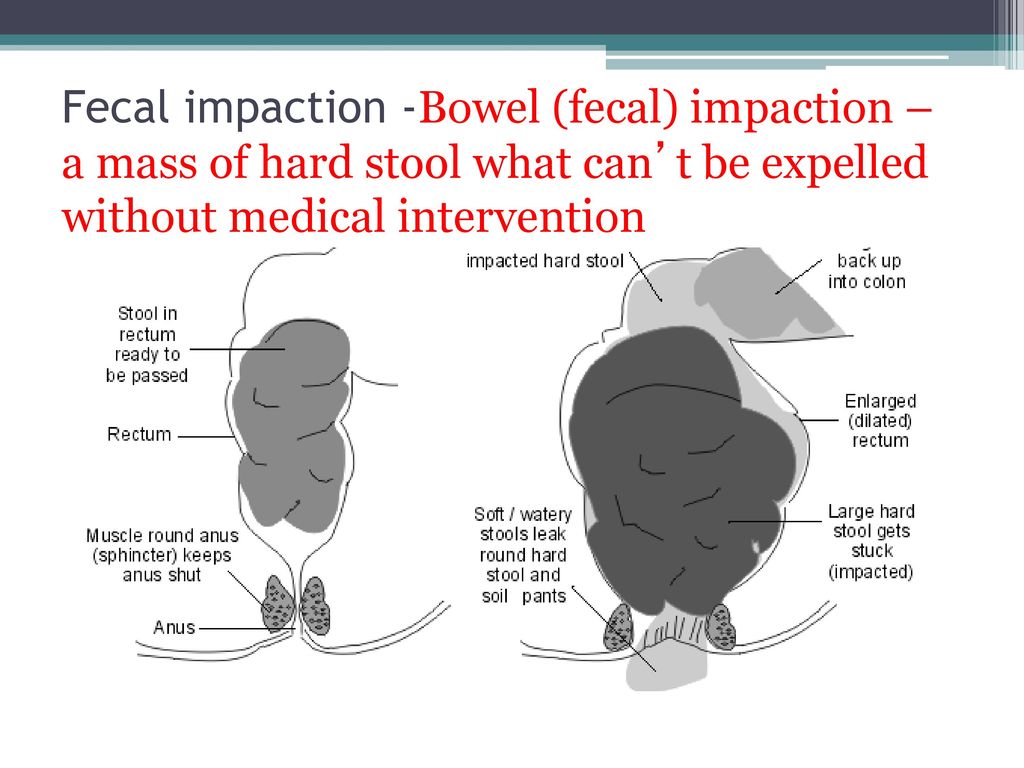Emotional jealousy in relationships
How Jealousy Can Negatively Affect a Relationship
Understanding what’s at the root of the emotion can help you cope with jealous behavior.
No one wants to admit being jealous, but we’ve all felt it. We all know that stingy realization that something or someone we love is at risk of being lost or taken from us.
Jealousy can be a reflection of our innermost thoughts. We then project the emotion onto our reality and relationships.
Jealousy can create unhelpful patterns of behaviors and intrusive thoughts that can leave relationships reeling.
Even though jealousy can be problematic in relationships, the emotion can be redirected and reframed into productive, meaningful avenues for growth and acceptance.
Has your partner become more controlling by questioning your behaviors and motives? Are you feeling insecure and creating scenarios in your head and destructively projecting them onto your relationship? If so, jealousy might be the culprit.
Jealousy is the emotion we can experience when something of value — such as our romantic relationships or positions at work — is being threatened and can be potentially taken from us.
Also, jealousy can arise spontaneously and potentially sabotage our otherwise healthy and harmonious relationships.
Still, the emotion occurs naturally in humans and can invite us to turn our attention toward the root of the feelings we’re experiencing.
Some might argue that jealousy in relationships isn’t “bad” and can be quite constructive. But there is a fine line between jealousy as a healthy motivator and jealousy as the destructive antagonist.
Jealously runs on assumptions and can make you imagine circumstances that aren’t there. Understanding how signs of jealousy may show up within a relationship can be helpful.
Because every relationship is unique, jealousy may appear in various ways and look different for everyone. The following are common signs that indicate your partner might be experiencing jealousy:
- possessive or controlling behavior
- isolation
- constant reassurance
- monitoring your whereabouts and communications
- distrust or suspicion
- lack of boundaries
- increased volatility
Becoming aware of toxic behaviors in your relationship can help you examine how your actions may affect your partner.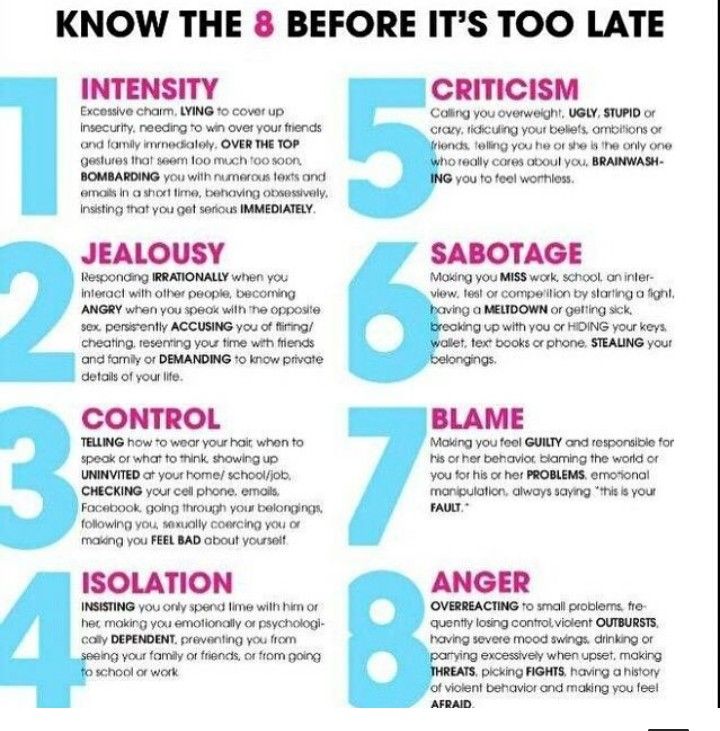
Behaviors that you may notice can include but aren’t limited to:
- restricting your ability to communicate with others
- going through your phone when you’re not around
- checking your text messages and emails without consent
- threats or acts of physical violence
If you or someone you know are experiencing domestic violence, you can:
- Call the National Domestic Violence Hotline 24 hours a day at 800-799-7233
- Contact loveisrespect.org by texting LOVEIS to 22522 or calling 866-331-9474
- Visit the National Coalition Against Domestic Violence for a list of resources
Anxiety and its trademark “what ifs” can create something out of nothing and leave the door open for jealousy to take root in your relationship.
According to a small 2021 study, people who monitor their partners on social media or mistrust online communication experience higher levels of jealousy and attachment anxiety.
The same study also reported that jealousy responses in relationships typically increase if an individual lives with attachment anxiety.
Behavioral patterns in previous relationships can also make you more likely to become jealous or experience jealousy in your relationship.
Jealousy is often a cover for underlying issues, such as:
- insecurity
- low self-esteem
- neuroticism
- fear of abandonment
These issues can fuel jealousy and manipulate a person’s behavior. They can also cause harm that can be hard to recover from.
If jealous behavior and feelings impact your relationship, implementing strategies and techniques can help you navigate back to a more peaceful place. The following are some to consider.
Explore the root of jealousy
Try to identify why jealousy has become an issue and communicate openly with your partner about their point of view.
You may also consider asking a trusted friend for their opinion. You might be surprised how a different perspective can help you see more clearly.
You might be surprised how a different perspective can help you see more clearly.
Focus on the present moment
The presence of jealousy can be an opportunity to discuss the reality of your relationship versus the perception of what it should be.
Mindfulness and gratitude practices may also be beneficial for overcoming jealousy. Being grateful for the relationship you have, perfect or not, can help you identify all the things that work.
Therapy
Couples therapy may also prove beneficial.
Finding a space where we feel comfortable expressing our true feelings, especially on a sensitive topic like jealousy, can be difficult.
A therapist can help guide your discussions so that you and your partner can get to the root causes of jealousy. They can also help you work to reframe unhelpful behaviors or intrusive thoughts.
Jealousy is a natural emotion, but it can create quite a challenge for even the strongest relationships.
Whether you notice jealousy in your partner or yourself, understanding why jealousy is present is crucial to the relationship’s survival.
Try to observe how jealousy affects your relationship and explore the root cause without judgment.
It may take time, but you can overcome jealousy with an openness to communicate and an ability to employ gratitude toward your partner and relationship.
15 Ways to Deal With Jealousy in a Relationship
Skip to contentPublished: October 20, 2022 Updated: November 8, 2022
Published: 10/20/2022 Updated: 11/08/2022
If you’re feeling jealous in your relationship, it’s not necessarily time to break up. Mild jealousy is a natural human emotion that can be healthy, as long as it’s addressed thoughtfully. A strong relationship has a foundation of love, mutual respect, trust, and communication; however, when one person feels threatened or worries about losing their partner, these emotions can transform into fear, insecurity, and jealousy.
If you’re ready to address the roots of jealousy and work on your relationship, get the support and guidance of a couples counselor on ReGain. Complete a brief questionnaire and begin online couples counseling for as little as $60 per week. Learn More.
Complete a brief questionnaire and begin online couples counseling for as little as $60 per week. Learn More.
Choosing Therapy partners with leading mental health companies and is compensated for referrals by ReGain
Visit ReGain
Where Does Jealousy Come From?Jealousy is a normal human emotion. When dealt with properly, it can even be an opportunity to strengthen the relationship; however, ongoing jealousy in a relationship can indicate anxiety or self-esteem issues (e.g., if you haven’t worked through childhood issues or past infidelity, it may manifest in how you engage in your present relationship). Research also suggests that jealousy grows when you face a threat to your self-esteem.
15 Tips to Deal With Jealousy In a RelationshipWhether you, your partner, or both of you are experiencing jealous feelings, there are many ways to manage jealousy in a relationship. It’s always best to be honest, open, and vulnerable with each other. Also, be willing to explore some of your own unspoken needs and cultivate a stronger sense of self-confidence.
It’s always best to be honest, open, and vulnerable with each other. Also, be willing to explore some of your own unspoken needs and cultivate a stronger sense of self-confidence.
Here are 15 tips to deal with jealousy in a relationship:
1. Acknowledge & Openly Talk About JealousyIf you’ve noticed jealous feelings, it might be time to have a candid conversation with your partner. Communication is key! In many instances, jealousy is an internal battle, so do some introspection. Then, share what you discover with your partner. Be truthful about how you feel and what makes you uncomfortable, creating boundaries for yourself and the relationship.
A partner who is willing to honestly talk about their feelings is demonstrating healthy jealousy. For example, saying, “I felt jealous when the man at the party was talking to you. I felt like he was flirting, and it made me feel uncomfortable,” is a healthy expression of jealousy. How you decide to respond to your own jealousy will make or break the relationship.
“Jealousy is something we all feel at one point or another. In our personal lives, feeling threatened by someone else is fairly common. However, jealousy can turn into a destructive force if we’re not careful. Recognizing that jealousy is usually a sign of insecurity can help us be more mindful of how we’re feeling and interacting with others. Perhaps if we catch ourselves feeling jealous, we can take a step back and reassess the situation. Is there something we’re afraid of? Are we feeling threatened? Taking the time to identify our feelings can help us to address them head-on rather than letting them fester. And when we’re able to do that, we can improve our relationships – with ourselves and with others.” – Lanae St.John, DHS, CSC, ACS, Founder of The MamaSutra
3. Work on Managing Your Emotions“Emotions can be information without being directives. That means you can experience jealousy, acknowledge that it is uncomfortable, and ask for appropriate support, without immediately behaving in a knee-jerk way or being accusatory. In relationships, we can ask our partner(s) for support, but we can’t expect them to manage our emotions for us (nor should we want them to!). Learn how to recognize what you’re feeling, acknowledge it, experience it, and tolerate it, as part of your own inner work.” – Bethny Gabriella Brown, LPC, Nemi Health & Wellness, PLLC
In relationships, we can ask our partner(s) for support, but we can’t expect them to manage our emotions for us (nor should we want them to!). Learn how to recognize what you’re feeling, acknowledge it, experience it, and tolerate it, as part of your own inner work.” – Bethny Gabriella Brown, LPC, Nemi Health & Wellness, PLLC
A journal is a safe place for you to vent and describe how your jealousy feels, both emotionally and physically. Your journal is not going to judge you for how you feel, so this is an opportunity for you to go beneath the surface and explore insecurities and frustrations.
When journaling, reflect on your relationship with these key questions:
- Is your partner really the right person for you?
- Did they do something specific to trigger the jealousy?
- Are you bringing your past into this new relationship?
- Are you self-sabotaging?
“We all have different experiences in life that shape our expectations for relationships. Different types of past experiences in family, friend and romantic relationships may lead us to be distrustful, insecure or dependent in the present. Hurling accusations at your partner can make them feel defensive, or even insecure themselves. When you notice those feelings of jealousy surface, it’s most helpful to take a moment to pause and reflect on what in your past is being triggered to make you assume the worst of your partner. From there, you can use I-statements to explain how you are feeling and why, without jumping to conclusions or assigning blame. This vulnerability can actually provide an opportunity for you and your partner to grow closer as you learn more about each other’s needs.” – Victoria Murray, LCSW
Different types of past experiences in family, friend and romantic relationships may lead us to be distrustful, insecure or dependent in the present. Hurling accusations at your partner can make them feel defensive, or even insecure themselves. When you notice those feelings of jealousy surface, it’s most helpful to take a moment to pause and reflect on what in your past is being triggered to make you assume the worst of your partner. From there, you can use I-statements to explain how you are feeling and why, without jumping to conclusions or assigning blame. This vulnerability can actually provide an opportunity for you and your partner to grow closer as you learn more about each other’s needs.” – Victoria Murray, LCSW
Marriage & Couples Online Counseling Options
While having both members of a couple participate in counseling is ideal, often one person does want to participate. The services below help both individuals and couples with relationship issues.
Regain – Receive couples counseling from a licensed therapist, starting at $60 per week. Get Matched With A Therapist
Online-Therapy – Video and text based relationship couples counseling, starting at $50 per week. Try Online-Therapy
Want to have your relationship go from OK to great? Make realistic, real-life improvements to your relationship. Ritual combines live video based coaching from relationship experts, with self-guided online activities. Free Two Week Trial
Choosing Therapy partners with leading mental health companies and is compensated for referrals by Regain, Online-Therapy, and Ritual.
6. Explore Underlying IssuesBefore you talk to your partner, identify where your feelings are coming from. Take responsibility for behavior and make a commitment to address your insecurities.
One method to explore low self-esteem focuses on identifying personal values such as communication, compassion, or honesty. This helps you pinpoint your positive traits and review what’s important to you in the relationship. This might help decrease distressing feelings of jealousy and overthinking in the relationship.
This helps you pinpoint your positive traits and review what’s important to you in the relationship. This might help decrease distressing feelings of jealousy and overthinking in the relationship.
“If jealousy is showing up for you, you might believe that this is an alarm bell signaling that something is wrong. Have you ever heard someone say “I went through his phone because I just KNEW he was cheating.” Of course, sometimes the feeling and other people’s actions line up – and there are plenty of people who have trusted their gut and learned that boundaries were being crossed in their relationships. But the feeling of jealousy, on its own, does not perfectly detect cheating or other disrespectful behavior. It might mean that you’re scared of something happening, even if it’s not actually happening. You can use this as information without acting on it right away!” – Bethny Gabriella Brown, LPC, Nemi Health & Wellness, PLLC
8.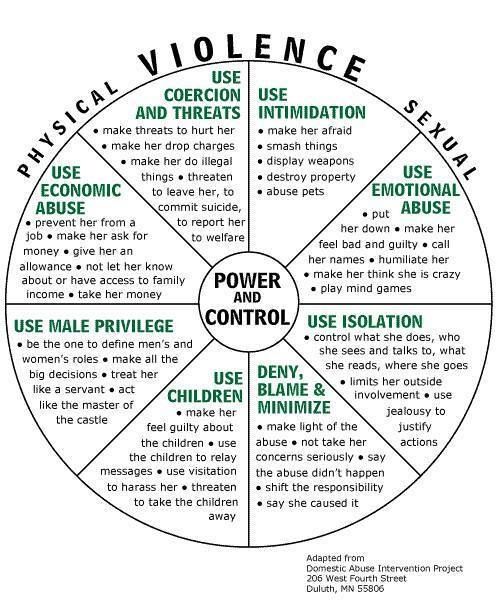 Identify Your Unspoken & Unmet Needs
Identify Your Unspoken & Unmet NeedsThis can be tricky because you will have to practice vulnerability. When jealousy involves a third person, you should do a self-assessment to help you filter through the web of emotions. You don’t want to act on assumptions or find yourself bringing up past issues or experiences and projecting them onto your current relationship.
The self-assessment can be as simple as asking yourself these questions:
- What is the emotion telling me?
- Where do I feel unseen in this relationship?
- What am I no longer getting from this relationship that I feel this other person is getting instead?
- What do I believe I’m losing?
Taking time to introspect and answer these questions can bring unmet needs to light. Once you have gained this new perspective, you can decide how you would like to move forward in response to your feelings.
9. Voice Your ConcernsIf your partner’s actions (or someone else’s actions towards your partner) provoke jealous feelings, don’t hesitate to bring this up with your partner as soon as possible. They might not have been aware of the behavior, or they might not have realized how you felt. Use the opportunity to discuss or revisit any relationship boundaries.
If you trust your partner but have doubts because of past relationship experiences, try finding ways that both of you can improve the situation. Remember, your partner is choosing to be with you. So, for example, if there is a specific person in your partner’s life that you feel jealous of, consider muting their Instagram, so you have fewer chances to compare yourself to them.
10. Hold Back On Making Rash DecisionsAmidst temporary heightened emotions, the choices you make can have long-lasting negative consequences. Jealousy that gets out of control can present itself in the form of anger, which can lead to the relationship crumbling. It’s strongly suggested that you take a few minutes and self-soothe when you feel emotionally charged by jealousy.
11. Start Appreciating Yourself More“Low self-esteem and insecurity are two of the most common reasons why you feel jealous. There’s this scary feeling of not being good enough for your partner. Some people tend to feel jealous because they feel like they are living in the shadow of their partner’s ex. These reasons will naturally make you feel like there’s a threat to the relationship and your self-esteem.
There’s this scary feeling of not being good enough for your partner. Some people tend to feel jealous because they feel like they are living in the shadow of their partner’s ex. These reasons will naturally make you feel like there’s a threat to the relationship and your self-esteem.
A good method to do is to try making a list of all the things you love about yourself and the traits your partner loves about you. You can even let your partner help you out with this list. Another thing you can do, especially if you keep comparing yourself to others, is to go through your social media, such as Instagram, and unfollow users who make you feel insecure. This can help give you space from feelings of inferiority and eventually develop your self-esteem.” – Lauren Cook-McKay, LMFT, Vice President of Marketing at Divorce Answers
12. Build Healthy Coping SkillsCoping with triggered jealousy won’t help you work though the underlying issues, but consciously turning your attention away from it can help keep you from acting on your feelings in a harmful way.
A few helpful coping exercises include:
- Deep breathing exercise
- Progressive muscle relaxation
- A mindfulness activity
“Another reason why you may feel jealous is having a lack of trust because of past relationships. Trust issues often stem from negative or traumatic past experiences, such as infidelity in past romantic relationships. However, lacking trust in your partner may lead you to the possibility of controlling them. Having a bit of control is normal, but trying to control your partner for things that are out of your control is problematic and damaging to the relationship.
Learning to heal your wounds is the first step to overcoming these trust issues and overall personal growth. This can help you trust your partner a lot more and keep you from trying to take control of every aspect of the relationship. Every time you feel jealous, remember that the person you’re with is not your ex-partner. Trust and let go of control.” – Lauren Cook-McKay, LMFT, Vice President of Marketing at Divorce Answers
Trust and let go of control.” – Lauren Cook-McKay, LMFT, Vice President of Marketing at Divorce Answers
If you’re struggling to manage jealous thoughts/feelings on your own, don’t hesitate to talk to a therapist. Talking about jealousy isn’t always easy, and initially you might feel even more uncomfortable, but an effective therapist knows that jealousy is normal and will respond to you with empathy and compassion.
Here are signs that you may want to talk to a therapist:
- Jealousy leads to obsessive or fixated thoughts
- Jealous thoughts become intrusive or unmanageable
- Violent thoughts or urges
- Problematic behaviors, such as following your partner, spying on them, or checking up on them consistently on social media
- Jealousy negatively impacts your day-to-day life and prevents you from focusing on work, activities, etc.
Jealousy crops up in different ways, but it’s mainly caused by a lack of communication. Couples therapy sessions can help you understand that your jealousy is either irrational or due to a misunderstanding. A couples therapist can teach you to be empathetic and understand why your partner is acting in a particular way vs. automatically jumping to the conclusion that they’re attracted to someone else.
Couples therapy sessions can help you understand that your jealousy is either irrational or due to a misunderstanding. A couples therapist can teach you to be empathetic and understand why your partner is acting in a particular way vs. automatically jumping to the conclusion that they’re attracted to someone else.
A couples therapist might also use cognitive behavioral therapy (CBT) to teach you and your partner to identify negative, intrusive thoughts, fact check the validity of those thoughts, and replace them with more realistic, supportive thoughts. For example, “He is going to leave me for his coworker,” would be replaced with, “He is cordial and professional with all of his coworkers because they work together.” Working together can bring partners closer when feelings of jealousy aren’t condemned or shamed.
Address the root causes of jealousy and work to build a stronger relationship. Get the support and guidance of a couples counselor on ReGain. Complete a brief questionnaire and begin online couples counseling for as little as $60 per week. Learn More.
Learn More.
Choosing Therapy partners with leading mental health companies and is compensated for referrals by ReGain
Visit ReGain
How to Deal With a Jealous PartnerBeing in a relationship with a jealous partner shouldn’t necessarily be a deal breaker. Some people have trust issues that stem from past relationships or breakups, and many times it is possible for couples to work through these problems with open communication, healthy boundaries, and patience.
Here are five tips for how to deal with a jealous partner:
- Talk about their fears and anxieties: sit down and ask them exactly what’s going on. Since jealousy is an indicator that a person feels threatened or scared, it’s important that you listen with empathy and compassion, without telling them these feelings are wrong (especially if you know your partner has anxiety)
- Don’t get defensive about your own behavior: this will probably be tricky, but try to evaluate the situation and respond to your partner calmly.
 Reassure them that you want to work on the situation with them. If, however, you are considering ending the relationship, this might be the time to be open about that, too.
Reassure them that you want to work on the situation with them. If, however, you are considering ending the relationship, this might be the time to be open about that, too. - Show extra affection: demonstrate extra love during this sensitive time by giving your partner more physical affection. Even though their jealous behavior might seem irrational to you, it’s important to be supportive.
- Create healthy boundaries: setting appropriate boundaries is a positive investment in your relationship. Mild jealousy from a partner can be a healthy thing, however, if it becomes excessive or abusive (always seek help if you are being abused), then it’s crucial to discuss the behaviors you are willing to work through as well as the ones you have zero tolerance for.
- Be patient and revisit the issue: jealousy is an issue that will take time and effort to fix. At times it will feel time-consuming and emotionally draining, but it is important that you continue to be supportive, work to build trust, and make it clear that you’re committed to working on the problem together.
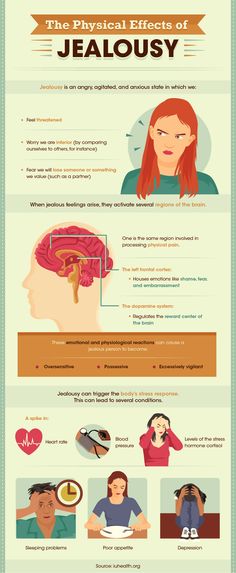
Jealousy is a normal human emotion, and emotions need to be released. In a relationship, jealousy might simply be a sign that you need to communicate with your partner about your needs, insecurities, boundaries, and desires. Healthy jealousy that is communicated in an open way results in growth in the relationship. This might look like one partner identifying insecurities and coming up with a plan to deal with them.
Is Jealousy a Sign of Love?There are two types of jealousy: healthy jealousy and unhealthy jealousy. Healthy jealousy stems from seeing a potential threat and needing to guard a partner you love. This is completely normal and part of being human. If however, jealousy is triggered by fear and leads to acting from a place of suspicion, paranoia, or insecurity, then it’s unhealthy and not based in love.
Jealousy & InsecurityTraits like low self-esteem, insecurity, feelings of inadequacy, and emotional dependency have all been linked to jealousy in relationships. It can be a complex emotion stemming from different sources such as abandonment issues, being cheated on in the past, or not feeling good enough/worthy. The best coping mechanism is to explore and heal the root cause.
It can be a complex emotion stemming from different sources such as abandonment issues, being cheated on in the past, or not feeling good enough/worthy. The best coping mechanism is to explore and heal the root cause.
Jealousy comes up at some point in most relationships, and if it is addressed openly, it can ultimately strengthen your relationship. How you respond to your own jealousy can either make or break the relationship. Take responsibility for your feelings by communicating them to your partner and actively looking into ways of working through them.
How to Find a TherapistIf you’re ready to find a therapist, consider using an online directory to find the perfect match for you. Check with friends, family members, or coworkers. Many may be in therapy themselves and can offer recommendations. Others may know of good therapists in your area or know of resources to connect you with therapists.
Final Thoughts on Jealousy in RelationshipsIf you’re in a relationship with a jealous partner and feel stuck, working with a professional therapist can help you navigate and overcome the challenges in a supportive and nonjudgmental way. Remember, you’re not alone.
Remember, you’re not alone.
Additional Resources
Education is just the first step on our path to improved mental health and emotional wellness. To help our readers take the next step in their journey, Choosing Therapy has partnered with leaders in mental health and wellness. Choosing Therapy may be compensated for referrals by the companies mentioned below.
BetterHelp (Online Therapy) – Dating is complicated and emotionally challenging. BetterHelp has over 20,000 licensed therapists who provide convenient and affordable online therapy. BetterHelp starts at $60 per week. Complete a brief questionnaire and get matched with the right therapist for you. Get Started
Online-Therapy.com (Online Therapy) – Are you dating someone with mental illness or addiction? Don’t face these challenges alone! The Online-Therapy.com standard plan includes a weekly 45 minute video session, unlimited text messaging between sessions, and self-guided activities like journaling. Recently, they added instructional Yoga videos. Get Started
Recently, they added instructional Yoga videos. Get Started
Mindfulness.com (App) – Mindfulness and meditation can change your life. In a few minutes a day with Mindfulness.com, you can start developing mindfulness and meditation skills. Free Trial
Choosing Therapy’s Directory – Find an experienced therapist who has your best interests in mind. You can search for a therapist by specialty, availability, insurance, and affordability. Therapist profiles and introductory videos provide insight into the therapist’s personality so you find the right fit. Find a therapist today.
Choosing Therapy partners with leading mental health companies and is compensated for referrals by BetterHelp, Online-Therapy.com, and Mindfulness.com
update history
We regularly update the articles on ChoosingTherapy.com to ensure we continue to reflect scientific consensus on the topics we cover, to incorporate new research into our articles, and to better answer our audience’s questions. When our content undergoes a significant revision, we summarize the changes that were made and the date on which they occurred. We also record the authors and medical reviewers who contributed to previous versions of the article. Read more about our editorial policies here.
When our content undergoes a significant revision, we summarize the changes that were made and the date on which they occurred. We also record the authors and medical reviewers who contributed to previous versions of the article. Read more about our editorial policies here.
-
Originally Published: October 1, 2021
Original Author: Insha Rahman, LCSW
Original Reviewer: Trishanna Sookdeo, MD, MPH, FAAFP -
Updated: October 20, 2022
Author: No Change
Reviewer: No Change
Primary Changes: Updated for readability and clarity. Reviewed and added relevant resources. Added seven new tips from licensed therapists.
If you are in need of immediate medical help:
Medical
Emergency
911
Suicide Hotline
800-273-8255
Jealousy. View of psychologists - PSU T.G. Shevchenko
As part of the project “Love, family, children” implemented by the Psychological Service, we offer you to get acquainted with some of the problems that may arise in relations between a man and a woman.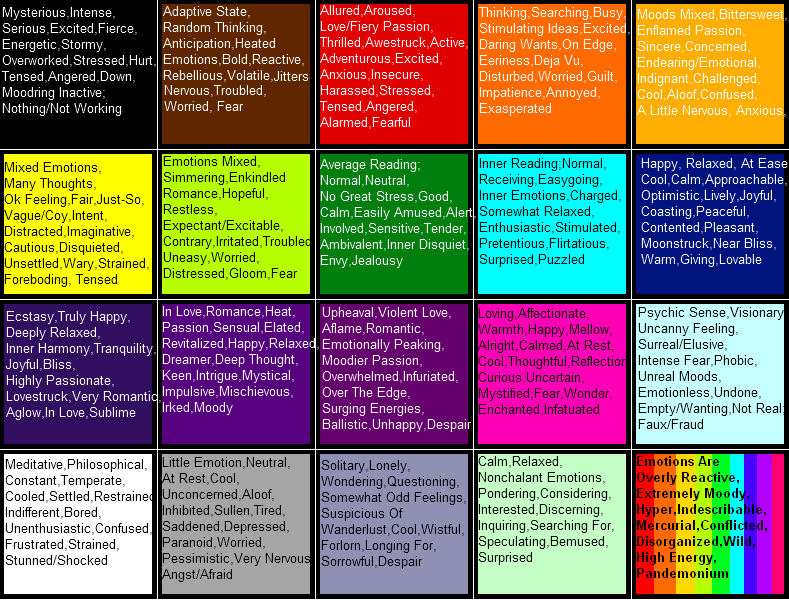
Jealous is a child,
who is afraid of monsters,
created in the darkness of his imagination.
Pierre Boiste (French philosopher)
There are different views on jealousy in relations between a man and a woman.
- Jealousy is an integral part of sexual love, intimate friendship, it speaks of the strength of attraction.
- Jealousy - selfishness in sexual relations.
- Jealousy is an emotion not inherent in love, like a shadow in human relationships.
In psychology, jealousy is seen as a negative feeling arising from self-doubt when feeling a lack of attention, love, respect or sympathy from a very close person, while all this is real or imaginary received by someone else.
This definition is very common and actually illustrates the essence of the problem. Namely, that the feeling of jealousy is fueled by the internal images of a person. Therefore, for a jealous person, proofs and explanations are often not an argument for trust and peace of mind.
Therefore, for a jealous person, proofs and explanations are often not an argument for trust and peace of mind.
An interesting fact is that jealousy has a biological basis and purpose. This feeling is provided by nature to protect the object most suitable for procreation, to preserve one's life and is fueled by testosterone. From this point of view, there is an objective, necessary jealousy. But what to do with pathological jealousy, which does not need real facts? Both the jealous and their entourage suffer from such excruciating jealousy. Particularly jealous people resort to surveillance, violence, scandals, depression, intrusive actions in the form of checking phones, etc. All this has a detrimental and destructive effect on family and love relationships.
Pathological jealousy, one way or another, can be compared with a psychological problem of a certain kind. Therefore, we propose to consider the following types of jealousy:
Paranoid jealousy.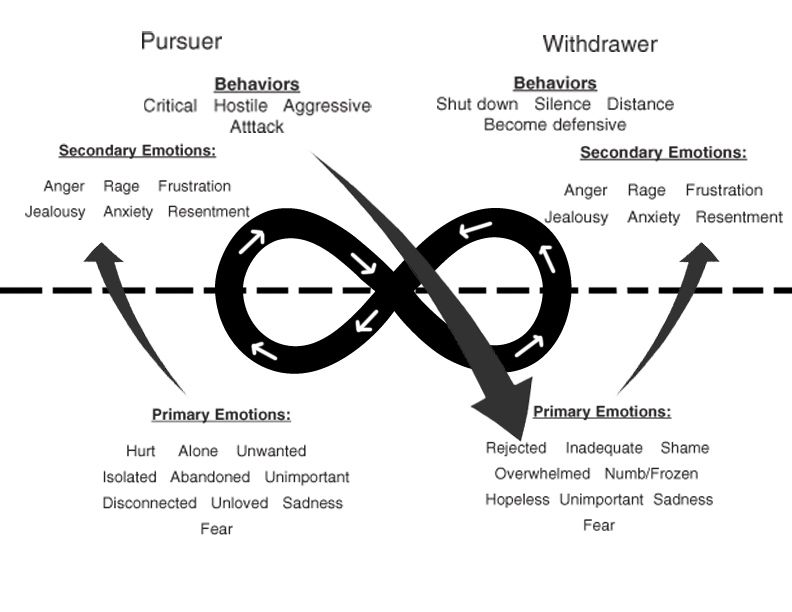 People with this type of jealousy, avoiding fantasies about their own desires for infidelity and polygamous relationships, project their needs onto other people, becoming convinced that their partners are dangerously attractive to others. According to the British psychoanalyst Nancy McWilliams, such fears often hide the fear of one's own homosexual fantasies, which are dangerous from the point of view of social punishment. It is in this that the need of a paranoid jealous person is revealed, not to receive punishment himself, to blame a loved one. Jealousy of this type arises as a result of an extreme degree of humiliation in the family, as well as due to increased anxiety of the mother, who not only is not able to help the child cope with her relationship, but also transmits to him a basic distrust of the world and himself.
People with this type of jealousy, avoiding fantasies about their own desires for infidelity and polygamous relationships, project their needs onto other people, becoming convinced that their partners are dangerously attractive to others. According to the British psychoanalyst Nancy McWilliams, such fears often hide the fear of one's own homosexual fantasies, which are dangerous from the point of view of social punishment. It is in this that the need of a paranoid jealous person is revealed, not to receive punishment himself, to blame a loved one. Jealousy of this type arises as a result of an extreme degree of humiliation in the family, as well as due to increased anxiety of the mother, who not only is not able to help the child cope with her relationship, but also transmits to him a basic distrust of the world and himself.
Manifestations. Constant distrust, checks, ideas that they will be thrown and betrayed from the very beginning of the relationship. This is expressed not just in deliberation, but in a sense of fear of losing the relationship. The partner of a paranoid jealous person in the course of the relationship begins to experience anxiety and a sense of insecurity that he did not experience before. With all this, paranoid individuals are capable of deep relationships, love and fidelity, and therefore can become wonderful family men. In order to help your partner cope with your distrust, create a stable, understood and friendly environment in the house and in the relationship. Keep promises, try to tell the truth. He needs to feel that your relationship is honest and safe.
This is expressed not just in deliberation, but in a sense of fear of losing the relationship. The partner of a paranoid jealous person in the course of the relationship begins to experience anxiety and a sense of insecurity that he did not experience before. With all this, paranoid individuals are capable of deep relationships, love and fidelity, and therefore can become wonderful family men. In order to help your partner cope with your distrust, create a stable, understood and friendly environment in the house and in the relationship. Keep promises, try to tell the truth. He needs to feel that your relationship is honest and safe.
Narcissistic jealousy. People whose personality is organized around the support of self-esteem through confirmation from outside are called narcissists. Jealousy of narcissists is based on a deep unconscious feeling that they are deceived and unloved and fueled by fear of shame. It is formed as a result of excessive expectations on the part of parents, inflated standards that are difficult for a child to meet. It seems to such people that if they are not the best, they will not be loved. Because of this, narcissistic jealousy is highly sensitive to non-verbal emotional messages and messages in the presence of other people. For example, when a partner is too smiling and friendly with others, has many friends. Jealousy manifests violently, emotionally. At the same time, you can hear the phrases “What will others think? They will laugh at me. Did you flirt with him because he makes more money? In order to quench the narcissist's jealousy, praise your partner more, especially in front of others. Try to be more restrained in praising others. And most importantly, the partner must understand that you love him and appreciate him not only for his achievements, but for his individuality and small weaknesses.
It seems to such people that if they are not the best, they will not be loved. Because of this, narcissistic jealousy is highly sensitive to non-verbal emotional messages and messages in the presence of other people. For example, when a partner is too smiling and friendly with others, has many friends. Jealousy manifests violently, emotionally. At the same time, you can hear the phrases “What will others think? They will laugh at me. Did you flirt with him because he makes more money? In order to quench the narcissist's jealousy, praise your partner more, especially in front of others. Try to be more restrained in praising others. And most importantly, the partner must understand that you love him and appreciate him not only for his achievements, but for his individuality and small weaknesses.
Psychopathic jealousy. Psychopathic jealousy is the most violent and takes the most pathological forms and consequences. The main problem is that a person cannot constantly control his impulses and reactions. Therefore, manifestations of jealousy are antisocial in nature. Psychopathic jealousy is built on the inability to human affection and reliance in relationships on primitive territorial psychological mechanisms. Jealous people believe that it is necessary to remind who is the boss in the house, and to show with jealousy that a person is his property. Most often, this type of jealousy is observed in men. The degree of manifestation of jealousy decreases after 30-40 years. Since it is difficult and almost impossible for psychopathic personalities to express their emotions and fears, they demonstrate them through showing their strength, resorting to violence, beatings, screaming. In order to avoid violence due to jealousy, it is necessary to make a person respect himself. Keep your promises and threats, do not throw words into the wind. And in no case do not tolerate pathological manifestations of jealousy, because this will only contribute to their growth.
Therefore, manifestations of jealousy are antisocial in nature. Psychopathic jealousy is built on the inability to human affection and reliance in relationships on primitive territorial psychological mechanisms. Jealous people believe that it is necessary to remind who is the boss in the house, and to show with jealousy that a person is his property. Most often, this type of jealousy is observed in men. The degree of manifestation of jealousy decreases after 30-40 years. Since it is difficult and almost impossible for psychopathic personalities to express their emotions and fears, they demonstrate them through showing their strength, resorting to violence, beatings, screaming. In order to avoid violence due to jealousy, it is necessary to make a person respect himself. Keep your promises and threats, do not throw words into the wind. And in no case do not tolerate pathological manifestations of jealousy, because this will only contribute to their growth.
Masochistic jealousy. People with masochistic jealousy have an unconscious idea that they can only be interested and loved in moments of fear, anxiety and suffering. Such feelings are formed at an early age, if parents pay attention to the child only at the moment when he is very ill (strong tears, a full diaper, pain). Masochists - jealous people fantasize and expect jealousy in order to feel pain and cause a partner to feel guilty, in which he will pay more attention to him. Often masochists introduce loved ones to attractive people and provoke situations in which their jealousy escalates. Even if there is an objective reason for jealousy or betrayal, masochists do not leave their loved ones, receiving painful pleasure from the situation. Manifestations of this type of jealousy are as follows: a sad person reminds that he loves so much, but he doesn’t, and he suffers. To help cope with the manifestations of masochistic jealousy, you can use trusting relationships. Try to pay attention to your partner in ordinary and pleasant situations.
People with masochistic jealousy have an unconscious idea that they can only be interested and loved in moments of fear, anxiety and suffering. Such feelings are formed at an early age, if parents pay attention to the child only at the moment when he is very ill (strong tears, a full diaper, pain). Masochists - jealous people fantasize and expect jealousy in order to feel pain and cause a partner to feel guilty, in which he will pay more attention to him. Often masochists introduce loved ones to attractive people and provoke situations in which their jealousy escalates. Even if there is an objective reason for jealousy or betrayal, masochists do not leave their loved ones, receiving painful pleasure from the situation. Manifestations of this type of jealousy are as follows: a sad person reminds that he loves so much, but he doesn’t, and he suffers. To help cope with the manifestations of masochistic jealousy, you can use trusting relationships. Try to pay attention to your partner in ordinary and pleasant situations.
Schizoid or avoidant jealousy. Schizoid jealousy is inherent in people who unconsciously and purposefully form fantasies of jealousy in order to create or maintain an interpersonal distance with a partner. These people are unemotional and therefore, in their jealousy, they do not show excessive anxiety and emotions. You can only notice the sadness that the jealous man does not want to talk about. This is precisely the difficulty in calming jealousy - it is difficult to guess about it. From them you can hear calm phrases like: “You like him, then I won’t interfere”, “I can’t stand your obvious flirting, I need to think in private.” Also, his ideas about jealousy can take a very artsy and creative form. For example, ideas for incredible dates or gifts. If a person becomes jealous, he becomes surprisingly indifferent in sexual relations, spends a lot of time away from home and at work, reading philosophy. The main problem that causes jealousy is the emotional distancing that a person is used to. If you see that the mother of a loved one is very cold and stingy with emotions, you can expect various tricks from him, with the help of which he will try to maintain a safe interpersonal distance with you. Respect for a person's personal boundaries can help deal with this kind of jealousy. If you feel that it is difficult for your partner to open up, give him the opportunity to get used to you gradually. He should have a place in the house that will be only his. Otherwise, sooner or later he will resort to his defense mechanisms of avoiding contact and form the idea of jealousy.
If you see that the mother of a loved one is very cold and stingy with emotions, you can expect various tricks from him, with the help of which he will try to maintain a safe interpersonal distance with you. Respect for a person's personal boundaries can help deal with this kind of jealousy. If you feel that it is difficult for your partner to open up, give him the opportunity to get used to you gradually. He should have a place in the house that will be only his. Otherwise, sooner or later he will resort to his defense mechanisms of avoiding contact and form the idea of jealousy.
Hysterical jealousy. Tantrums are very emotional, sensitive and demonstrative. They have a developed intuition and are used to being the center of attention of a loved one and not only. Tantrums are used to having fun. Hysterical jealousy always has a vivid emotional character and is often associated with suspicions of betrayal in the form of sex, and not spiritual intimacy. Jealousy often arises if sexual relations cool down and comes with the first manifestations of old age (wrinkles, gray hair). These two indicators form a belief in personal unattractiveness, and as a result, a certain justification is formed, in our case, treason. Jealous people are convinced that the partner has found or is looking for a younger and physically stronger person. The hysteric sharply and violently demonstrates his jealousy, begins to scream for no reason. His mood quickly changes from good to bad, there is no criticism of his actions, he calms down only in case of a scream or aggression from a partner. The actions of a jealous person are unusually theatrical, reminiscent of playing out a tragedy. In order to reduce the level of unreasonable jealousy, it is necessary to kindle a flame in sexual relations, to talk more often about the external attractiveness of a partner.
Jealousy often arises if sexual relations cool down and comes with the first manifestations of old age (wrinkles, gray hair). These two indicators form a belief in personal unattractiveness, and as a result, a certain justification is formed, in our case, treason. Jealous people are convinced that the partner has found or is looking for a younger and physically stronger person. The hysteric sharply and violently demonstrates his jealousy, begins to scream for no reason. His mood quickly changes from good to bad, there is no criticism of his actions, he calms down only in case of a scream or aggression from a partner. The actions of a jealous person are unusually theatrical, reminiscent of playing out a tragedy. In order to reduce the level of unreasonable jealousy, it is necessary to kindle a flame in sexual relations, to talk more often about the external attractiveness of a partner.
Obsessive-compulsive jealousy. People prone to this type of jealousy tend to form obsessive thoughts and actions. There are many workaholics and scientists among them. Their jealousy is saturated with rational explanations, facts, and is unemotional. Manifestations of jealousy are systemic, planned. For example, a person checks your phone exactly four times a day or eavesdrops only on evening phone conversations. Jealousy is similar to ritual actions. The reason for jealousy is the anger and fear imposed on the part of the parents, when they showed love only in return for homework done, a poem read or told. Thus, by performing certain actions, the jealous person protects himself from the loss of the object. Let the person perform his rituals, of course, if they are more or less normal. Remember that this is how they think they protect your relationship.
There are many workaholics and scientists among them. Their jealousy is saturated with rational explanations, facts, and is unemotional. Manifestations of jealousy are systemic, planned. For example, a person checks your phone exactly four times a day or eavesdrops only on evening phone conversations. Jealousy is similar to ritual actions. The reason for jealousy is the anger and fear imposed on the part of the parents, when they showed love only in return for homework done, a poem read or told. Thus, by performing certain actions, the jealous person protects himself from the loss of the object. Let the person perform his rituals, of course, if they are more or less normal. Remember that this is how they think they protect your relationship.
In any case, jealousy, one way or another, may be present in our relationship. It can be useful and warm up a cooled relationship. But it can destroy even the strongest union. “If you want to keep your husband, make him a little jealous of you; if you want to lose him, make him jealous of you a little more” (Henry Louis Mencken). Jealousy can keep you feeling in love. In a stable relationship, eliciting a little bit of jealousy is just as important as it is when a relationship starts. But here it is very important not to go too far. Causing jealousy in a partner, it is important not to forget to give him attention, care, your love. Remember that when playing with jealousy, it is important not to play too much. If there is too much jealousy, it becomes almost impossible to maintain a warm relationship.
Jealousy can keep you feeling in love. In a stable relationship, eliciting a little bit of jealousy is just as important as it is when a relationship starts. But here it is very important not to go too far. Causing jealousy in a partner, it is important not to forget to give him attention, care, your love. Remember that when playing with jealousy, it is important not to play too much. If there is too much jealousy, it becomes almost impossible to maintain a warm relationship.
Psychologists at the University of Delaware believe that both women and men are subject to blind jealousy. Two professors have found that in a moment of jealousy, people become so drunk on negativity that they are unable to distinguish objects in front of them. Therefore, at the moment when jealousy becomes pathological, that is, it is formed not on objective facts, but on internal deep problems, a similar blindness overcomes a person’s whole life and relationships. And then the most effective way out can be an appeal to an experienced psychologist.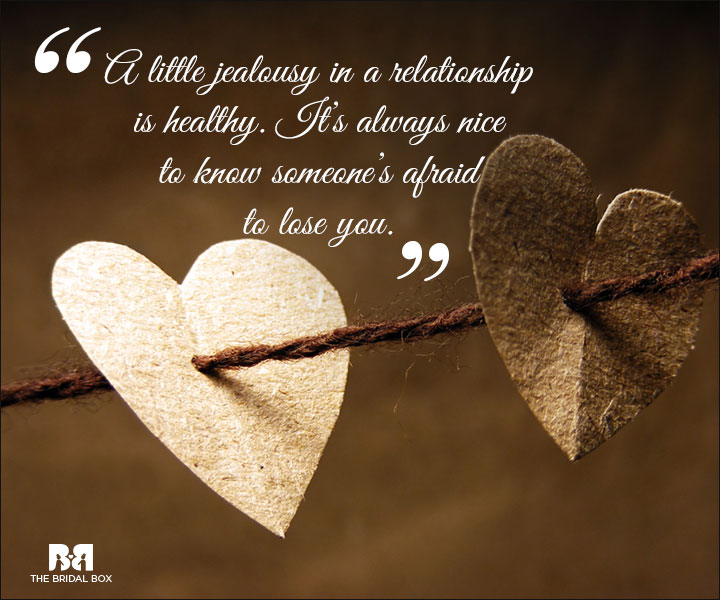 But to begin with, discuss with your partner your concerns about your own or his jealousy, clearly and unambiguously formulate your attitude towards him. And most importantly - do not forget to say words of love to each other.
But to begin with, discuss with your partner your concerns about your own or his jealousy, clearly and unambiguously formulate your attitude towards him. And most importantly - do not forget to say words of love to each other.
The psychological service of the university is always with you!
(7 general room 77, 81, office tel.: 053379567)
What is jealousy and how to stop being jealous: 7 tips from a psychologist
. What are the real causes of jealousy? Dealing with the SpecialistsUpdated August 15, 2022, 10:44 AM
Shutterstock
Many people experience an unpleasant feeling of anxiety, anger and envy when the object of their affection or love shows their affection for another person. This is jealousy, and, apparently, there is nothing unusual in such a reaction. The question is how far a person can go in his suspicion. Psychologists explain what is the cause of this feeling and how to manage it.
Content
- What is it
- Causes
- Signs
- Psychological advice
What is jealousy
Shutterstock
Jealousy is a complex of negatively colored feelings that appear in a person from the feeling that someone important to him does not show sufficient affection or is in a situation where this affection can be violated. Simply put, jealousy is combined with a possessive feeling and a desire to be the only one for a partner in every sense. There is no medical diagnosis or definition of the term "jealousy".
Simply put, jealousy is combined with a possessive feeling and a desire to be the only one for a partner in every sense. There is no medical diagnosis or definition of the term "jealousy".
Tatyana Potapovadocent, PhD, psychotherapist "SM-Clinic"
“First of all, it should be said that jealousy is a normal, natural feeling, it is experienced by everyone who loves. Some say: "Without jealousy, there is no love." This feeling is especially strong in a situation of so-called romantic love, it is characterized by a special attitude towards the object of love: "This person is only mine, he should feel love only for me."
Valeria Moshnyatskayaclinical psychologist of the European Medical Center
“In the ICD-10 (International Classification of Diseases) we will not find a diagnosis of “jealousy”, but most often people suffering from these conditions have a diagnosis of F43.2 “adjustment disorder” or may relate to anxiety spectrum disorders or depressive disorders. A person prone to jealousy may resort to manipulation, blackmail, and even threats when the peak of his experiences is growing. After the passed peak, regret and guilt may appear. But the main thing is that there is calming until the next episode. This feeling is what keeps the cycle of behavior going. The main task of a jealous person is to become the main thing for a partner and devalue everyone, even the partner himself, in order to stay in the first place for sure.
A person prone to jealousy may resort to manipulation, blackmail, and even threats when the peak of his experiences is growing. After the passed peak, regret and guilt may appear. But the main thing is that there is calming until the next episode. This feeling is what keeps the cycle of behavior going. The main task of a jealous person is to become the main thing for a partner and devalue everyone, even the partner himself, in order to stay in the first place for sure.
According to Tatyana Potapova, different types of jealousy should be distinguished. There is one that is based on objective factors, such as real treason. Irrationally jealous are those who invent possible causes, present them and suggest them. Pathological jealousy is characterized by delusional and obsessive states. It is the subject of scientific research.
For example, a comparison of morbidly jealous people with ordinary people showed that they are often much older than the control group. At the same time, they demonstrated low purposefulness and desire to cooperate with others, the desire to avoid any harm, high impulsivity and anxiety, as well as low social adaptation [1].
Pathological love is next to jealousy, but studies confirm that they are not always the same or combined. A comparison of subjects with pathological jealousy and pathological love showed that jealous people are more likely to be in relationships and feel satisfied with them. On the other hand, despite the obvious differences, 72.3% of respondents showed symptoms of a mental disorder [2].
Why do people get jealous
Shutterstock
Jealousy is based on fear, which is combined with the feelings of anxiety, self-abasement, and anger that it causes.
Valeria Moshnyatskaya:
“It could be the fear of losing love, power, control, stability, security, support, respect, etc. For example, a pathological desire to protect a partner from communication with others may be caused by a fear of loss or a fear of comparison, which, in turn, was learned in childhood. If a child has been compared to others or favored siblings in childhood, he may want to keep his partner away from other people so that he does not face similar comparisons and a return to painful experiences.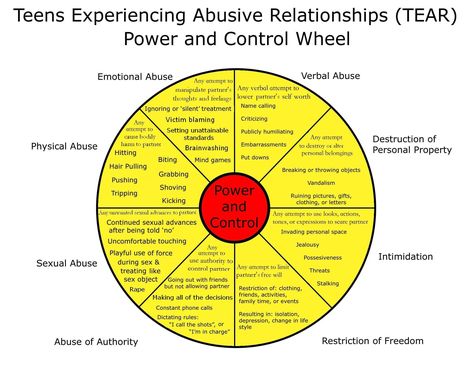
Tatyana Potapova:
“The feeling of jealousy usually develops between one and three years of age — it is always associated with childhood. The child observes the relationship of the parents and transfers the observations into adulthood. Lack of love in childhood, experienced violence, psychological trauma can cause feelings of jealousy. The main factor is the fear of losing the love of a loved one.
Thus, the underlying causes of jealousy can be caused by:
- traumatic experiences in childhood or adolescence;
- low self-esteem;
- unhealthy affection;
- selfishness and possessiveness;
- projection of their feelings on the partner's feelings.
There is also a version about the evolutionary background of jealousy. This feeling, which helped our ancestors to survive, was inherited by us. The traditional model of evolutionary psychology holds that men become jealous in response to sexual threats to the relationship they are in. If our male ancestors were confident that they were the real fathers of the children they provided, they were guaranteed to pass on their DNA.
If our male ancestors were confident that they were the real fathers of the children they provided, they were guaranteed to pass on their DNA.
Women, in turn, were jealous in response to emotional threats to the relationship they were in. After all, these stable relationships increased the chances of survival of the offspring, which means that the transmission of further female DNA. This eventually led to the appearance of men with the sexual jealousy gene and women with the emotional jealousy gene [3]. True, some studies show that differences in the components of jealousy associated with gender are not relevant now. Simply put, both men and women are equally jealous in case of sexual infidelity, and in case of emotional infidelity they feel more resentment [4].
How to understand that you are jealous
Shutterstock
Not everyone is ready to directly admit that they are jealous. Often people don't even realize it. Therefore, Valeria Moshnyatskaya described several signs of the presence of jealousy in a relationship:
- the partner tries to control communication, all messages and correspondence, personal belongings and social networks;
- wants to know where you are every minute;
- is looking for inconsistencies in your words and suspects lies;
- negatively evaluates your communication with the opposite sex or even friends, tries to devalue them and criticize their behavior;
- constantly requires confirmation of love, fidelity; in their absence, the partner becomes overly emotional and quick-tempered, may be offended without explaining the reason;
- uses manipulation and blackmail.

Most importantly, this behavior is systematic.
“At the moment of an attack of jealousy, a person experiences the strongest uncontrollable fear, which envelops him so much that it makes it impossible to make decisions rationally. You see the wounded childish part of a person who is scared, and she is ready to keep the object of love by any means.
It is important that the manifestation of jealousy, like any other personality traits, has different intensity. If a partner clearly explains to you the reason for his fears, specifically formulates a request, and this does not cause tension in you, then jealousy can be compensated in the relationship cycle. For example, a partner says: “It is important for me that you do not compliment other people in my presence. It hurts me a lot, and I immediately experience a lot of negative emotions that I can’t cope with ”or“ I very often worry that you will stop loving me or leave me. The only thing that saves me from this fear is your words of love. Tell me more of them. But if you don’t tell me because you forgot (a) or you got winded (as), then I would like (a) to be able to request them and hear from you.
Tell me more of them. But if you don’t tell me because you forgot (a) or you got winded (as), then I would like (a) to be able to request them and hear from you.
How to stop being jealous: 7 tips from a psychologist
Shutterstock
Jealousy is dangerous not only for the object - he is exposed to the risks of persecution, psychological and physical violence - but also for the jealous person himself. Doctors say that people who are prone to jealousy experience high blood pressure and heart rate, high levels of adrenaline, and may have a weakened immune system. Jealousy causes anxiety and potentially insomnia [5].
Doctors are trying to find a cure only for morbid jealousy, which can cause domestic violence [6]. By the way, jealousy also affects the sexual health of people. For example, a study in Nicaragua showed that, as a result of jealousy, men force their partners to have sex, often transmitting diseases and infections such as HIV to them [7]. Cases of successful treatment with the antipsychotic drug pimozide are known [8]. There is also talk about a possible positive effect from intranasal administration of oxytocin [9].
There is also talk about a possible positive effect from intranasal administration of oxytocin [9].
There are some simple but effective self-help steps that Valeria Moshnyatskaya recommends:
- Be aware that you are jealous. As soon as you begin to experience anxiety, immediately tell your partner: "I'm very jealous right now, I need time to recover."
- Discuss your story with a partner, explain why fear arises.
- Reflect. Try to keep a diary and write down what happens to you at the peak of jealousy. After four or five recordings, analyze what fear is driving you to these feelings.
- Remember that each attack of jealousy is very likely to alienate your partner from you, which is the paradox of this cycle.
- Try to remember to whom for the first time in your life you experienced these feelings. Most likely, this is one of the parents, then it is worth discussing this with him (her) and request words of support.
- If you feel that jealousy takes a lot of energy, it is worth contacting a psychotherapist for help in order not to miss depressive symptoms.

- It is important to remember that a person prone to jealousy is more likely to choose a partner who, with their low emotionality, supports these cycles. We choose those with whom we know how to behave. But this is not a sentence, any relationship can be brought into comfortable with the help of conversations or family therapy.
Tatyana Potapova:
“What can be done to a person who understands that he is jealous “out of nowhere”? Refuse to interrogate your loved one, try to look at things objectively: take a sheet and divide it into two parts, try to describe the events as if they happened to a stranger. What did your partner do out of the ordinary? Reflect all the pros and cons, look at the result from a distance.
Another way to fight jealousy is sublimation, the transfer of negative energy into a positive channel. Creativity, hobbies - everything that helps to cope with negativity.
However, when trying to overcome jealousy, one should not go to the other extreme: it also happens that they actually try to deceive a jealous person.
